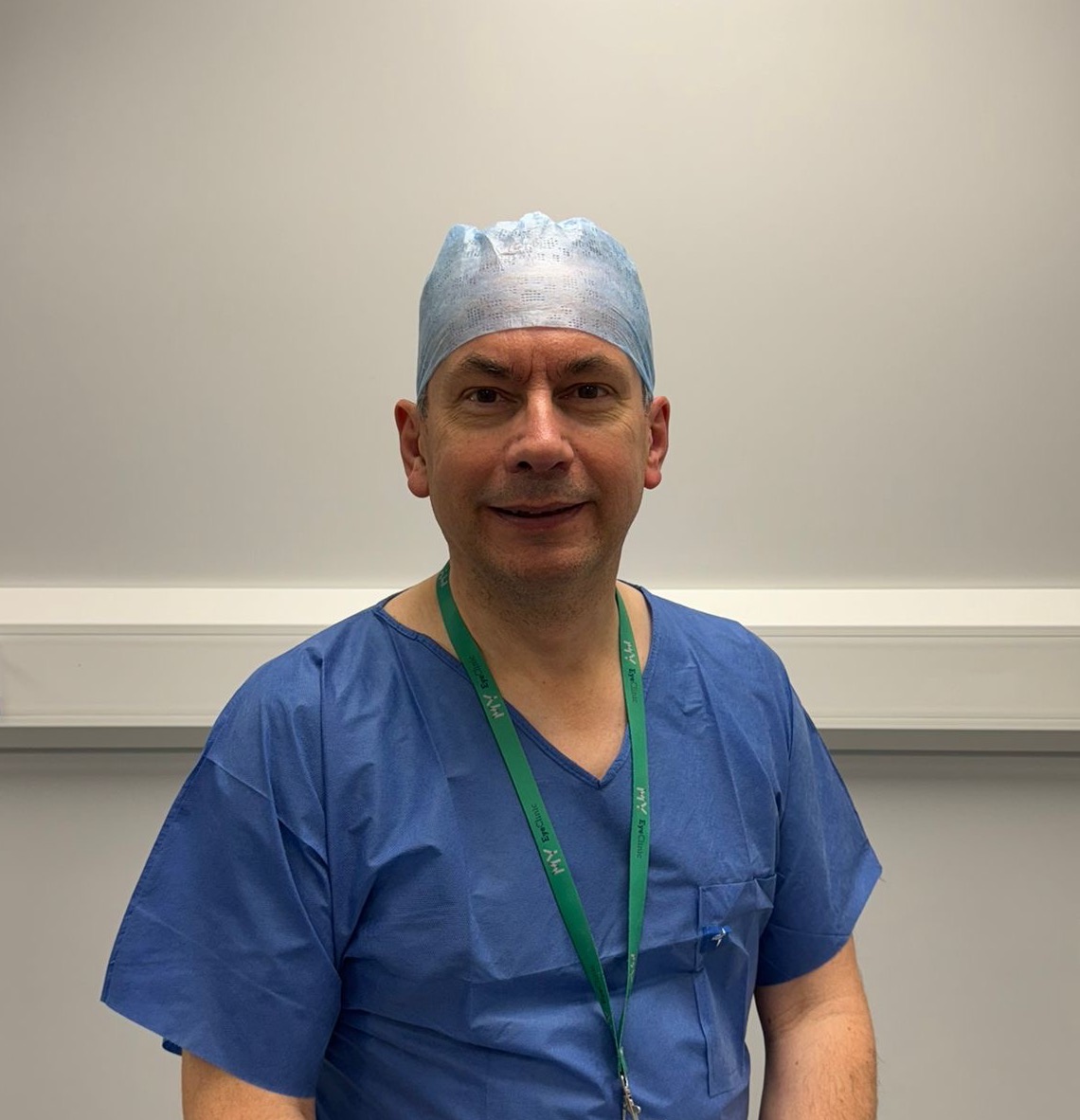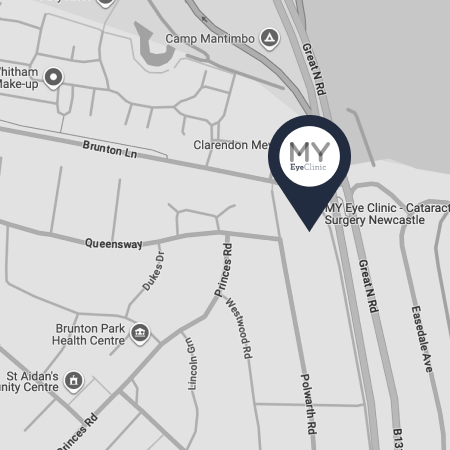Transform your vision with lens replacement surgery
See how our patients go from struggling with blurry, ageing eyes to enjoying the freedom of clear, youthful vision
Achieve freedom from glasses and eye strain
Experience restored, crystal-clear vision and a reduced dependence on glasses. Say goodbye to the constant strain of switching between multiple pairs of glasses and struggling with blurred vision. Lens replacement surgery offers lasting relief from these frustrations, giving you back confidence and visual freedom.
Feel liberated and confident
Enjoy a renewed sense of independence and confidence. Free from the constant worry and frustration of relying on glasses, you’ll feel younger, more empowered, and ready to embrace life. Say goodbye to insecurities and hello to a clearer, more carefree future.
Enjoy clear, effortless vision every day
After lens replacement surgery, your days will be smoother and more enjoyable. From effortlessly reading menus and labels to confidently driving without glare, every part of your daily routine becomes easier. You’ll feel free to focus on what matters most, whether it’s work, social activities, or hobbies.
Transform your appearance
No longer hidden behind glasses, you’ll project a fresh, revitalised look. Friends and colleagues will see a more vibrant, assured version of you, as you embrace life with clear vision and renewed self-assurance.
Transform your vision with lens replacement surgery
See how our patients go from struggling with blurry, ageing eyes to enjoying the freedom of clear, youthful vision—rediscovering the joy in everyday moments without the need for glasses

Feel liberated and confident
Enjoy a renewed sense of independence and confidence. Free from the constant worry and frustration of relying on glasses, you’ll feel younger, more empowered, and ready to embrace life. Say goodbye to insecurities and hello to a clearer, more carefree future.

Enjoy clear, effortless vision every day
After lens replacement surgery, your days will be smoother and more enjoyable. From effortlessly reading menus and labels to confidently driving without glare, every part of your daily routine becomes easier. You’ll feel free to focus on what matters most, whether it’s work, social activities, or hobbies.
3 Steps to ditch reading glasses for good
Regaining clear vision is simpler than you think. Follow this easy path to a life without the hassle of reading glasses.

Step 1: Get in touch
Not everyone qualifies for treatment to eliminate the need for reading glasses. The first step is to find out if there’s an option that can help you. Call our friendly team at 0191 917 8887 or book a free appointment using our simple online calendar.

Step 2: We'll meet
During your appointment, we’ll discuss your specific vision needs and lifestyle preferences. You’ll get detailed answers to all your questions and a personalised recommendation for your vision correction. You’ll leave with a clear plan and the confidence to make an informed decision.

Step 3: Feel younger
After treatment, patients across the country are amazed at how quickly their lives improve and how much younger they feel. Reading menus, checking their phones, or seeing the car dashboard becomes effortless again. Many say they wish they had done it years sooner!
Your questions answered for clearer vision
Learn how lens replacement surgery can restore your vision and free you from reading glasses with answers to all your essential questions.
Lens replacement surgery is an alternative procedure for patients (usually over the age of 45) who may prove to be unsuitable for excimer laser surgery (especially individuals with high degrees of short sight or long sight that may be beyond the safe treatment limits with excimer laser). It may also be a more appropriate procedure for individuals who have early signs of cataract development. Newer types of implants, such as multi-focal lenses, can help give suitable patients not only good distance vision but also good near vision without the need for glasses. It is also possible to use toric implants to correct astigmatism.
Lens replacement surgery, also called Refractive Lens Exchange (RLE), can improve your vision. In this procedure, we remove the natural lens in your eye and replace it with an artificial lens. This new lens helps you see more clearly, making it easier to read or see things far away without glasses or bifocals.
The surgery is similar to cataract surgery, where we remove a cloudy lens. However, with lens replacement surgery, we use a special lens that can help you see clearly at all distances. This may reduce or even eliminate your need for glasses or contact lenses.
Advantages:
- Lens replacement surgery can help treat eye conditions like presbyopia (difficulty seeing things up close) and severe farsightedness.
- It can help with cataracts, astigmatism (blurred vision), long-sightedness, short-sightedness, cornea issues, and dry eyes.
- It reduces the need for glasses or contact lenses, which can decrease headaches and eye strain caused by wearing them.
- It’s a good option for people who aren’t suitable for other types of eye surgery.
- This surgery can improve overall eye health and may reduce the risk of eye infections.
- Depending on your specific eye conditions, you may experience some or all of these benefits.
Disadvantages:
- People who are short-sighted have a higher risk of retinal detachment (when the retina pulls away from the back of the eye) after this surgery. They should consider it only if other surgeries aren’t an option.
- In rare cases, additional surgery may be needed to achieve the best results.
- Lens replacement surgery typically costs more than LASIK or other common eye surgeries.
Lens replacement surgery is a bigger surgery with more risks compared to other eye correction methods. But, if you have a strong eye problem and want to rely less on glasses or contact lenses, this surgery might be worth the risks.
Here are some risks and problems that could happen with lens replacement:
- Around 15% of patients may experience halos around lights at night.
- Decreased contrast sensitivity may occur in low-light conditions.
- Glasses may still be required after surgery for optimal distance and/or near vision.
- There is a 1% risk of vision loss due to complications like posterior capsule rupture (PC rupture) or cystoid macular oedema (CMO).
- Significant biometry error (1%) can result in under or overcorrection, leading to residual refractive errors (ametropia).
- Some patients may need enhancement surgery, such as laser vision correction (LVC), piggy-back IOL, or IOL exchange.
- Posterior capsule opacification may occur, requiring YAG laser treatment (5-10% of cases).
- Possible side effects include glare, halos, and reduced night vision.
- Rare but serious complications include endophthalmitis (eye infection) and retinal detachment.
If lens replacement surgery isn’t the best option for you, there are other ways to improve your vision:
- For improving distance or near vision, or correcting astigmatism, procedures like PRK, LASIK, or ICL can help. However, after age 40, you may still need reading glasses.
For lens replacement, there are different types of artificial lenses (IOLs) available:
- Monofocal fixed-focus IOLs: These lenses provide clear vision at one specific distance—far, middle, or near. For astigmatism, a special monofocal lens called Toric IOL can be used.
- Multifocal IOLs: These lenses allow you to see clearly at multiple distances.
- Each type of lens has unique benefits. The right choice for you depends on your vision needs and the health of your eyes.
Lens replacement surgery is a quick procedure that takes about 15 minutes per eye. We treat one eye at a time, usually with a week between surgeries.
- Step 1: We start by making a small cut where the white part of your eye meets the clear front (cornea).
- Step 2: Then, we create a small opening in the thin membrane that holds your lens (the lens capsule).
- Step 3: We break the old lens into tiny pieces and remove it from your eye. This is called lens extraction.
- Step 4: Finally, we place a new lens into the same spot where the old one was. This new lens is chosen carefully to improve your vision based on your specific needs
After lens replacement surgery, your vision will become clearer. It reduces the blur that makes it hard to see.
You may no longer need reading glasses or bifocals, which is a huge benefit. Activities like reading, sewing, or using your phone will be easier without always needing your glasses.
Going out, watching movies, or enjoying a walk will feel more natural and fun. You won’t have to worry about leaving your glasses behind.
In short, this surgery helps you return to the things you love with better vision, making life feel simpler again.
Does struggling with reading glasses limit your life?
If so, you have the option to consider lens replacement surgery

Always searching for your glasses?
Do you constantly find yourself hunting for your reading glasses? Whether it’s checking your phone, reading a menu, or using your computer, your glasses always seem to vanish when you need them most. By scheduling a free video consultation, you can explore options to free yourself from this constant inconvenience. Picture a life where you no longer have to worry about where your glasses are.

Experiencing eye fatigue?
Do your eyes feel tired after trying to focus on fine print or screens? Eye strain is a common issue as vision changes with age, especially when relying heavily on reading glasses. A free video appointment could help you discover ways to reduce this strain and enjoy a more comfortable viewing experience.

Struggling to keep up with technology?
Switching between glasses for different tasks can make using devices frustrating. Trying to read small text on screens and constantly swapping glasses interrupts your routine. By booking a free video appointment, you can explore solutions that make it easier to stay connected in today’s digital world, giving you a smoother, hassle-free experience.
“Genuinely life-changing”
Katrina explains how patients feel after lens replacement surgery at My Eye Clinic
We answer your questions about lens replacement surgery
Get a quick overview of everything you need to know about restoring your vision
Academic resources on Refractive Lens Exchange
Expand your knowledge about Refractive Lens Exchange. (These links will take you off our website.)

Hi, I’m Rob Boyce
After training as an engineer and research scientist, I pursued medicine at Nottingham University, followed by advanced ophthalmology training. With over 20 years as a Consultant Ophthalmologist specialising in Oculoplastic and Lacrimal Surgery, I’m committed to delivering the highest quality care at MY Eye Clinic, using cutting-edge techniques and patient-centred care.
Mr Rob Boyce
Founder and Owner of MY Eye Clinic










